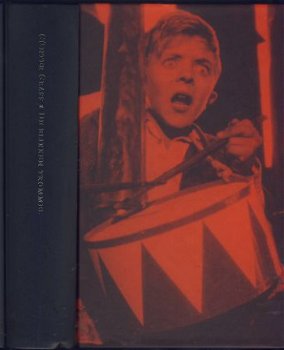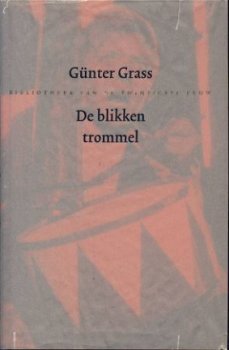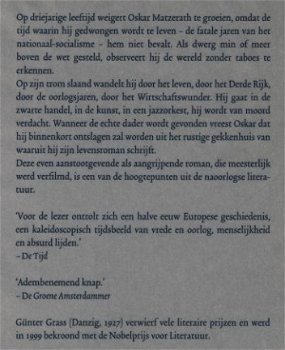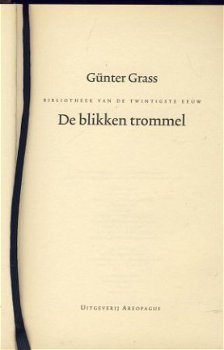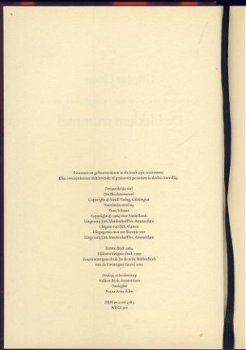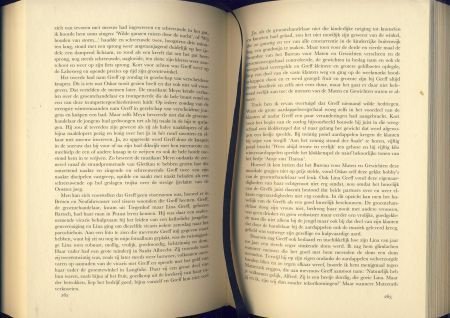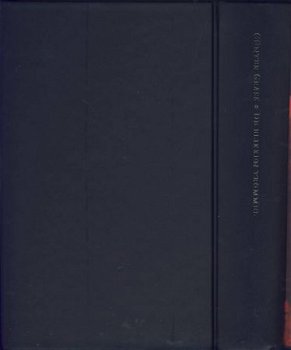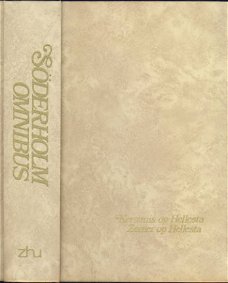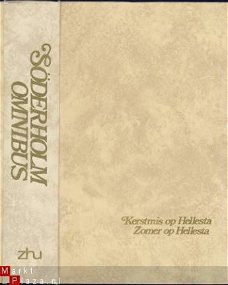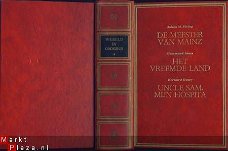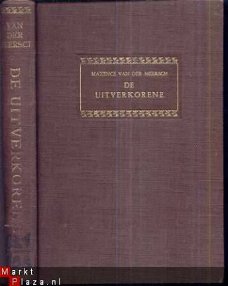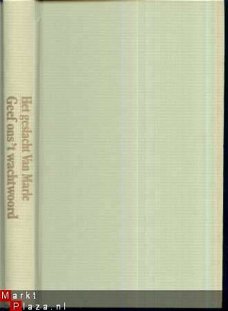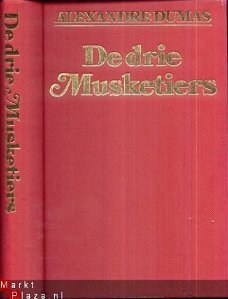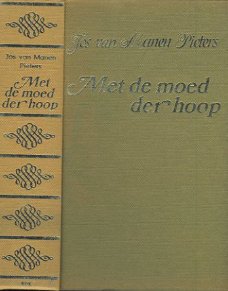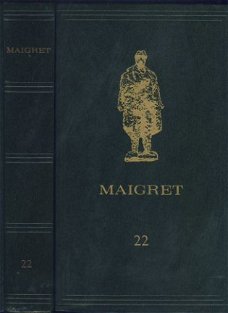
GÜNTER GRASS**DE BLIKKEN TROMMEL**DIE BLECHTROMMEL*HARDCOVER
Kenmerken
- Conditie
- Nieuw
- Levering
- Niet van toepassing
Omschrijving
GÜNTER GRASS
**DE BLIKKEN TROMMEL**
***DIE BLECHTROMMEL***
NEDERLANDSE VERTAALING KOOS SCHUUR.
HARDCOVER;!!! NIEUW BOEK!!!!
ARTIKEL INVENTARIS CODE 15.760
FORMAAT 221 X 145 X 47 + 526 PGS + 770 GRMS
VERZENDINGI BELGIE 5,50 EURO NAAR NEDRLAND 8,50 EIURO
Günter Grass
From Wikipedia, the free encyclopedia
Günter Grass
Born Günter Wilhelm Grass
16 October 1927 (age 84)
Danzig-Langfuhr,
Free City of Danzig
Occupation Novelist, Poet, Playwright, Sculptor, Graphic Designer,
Nationality German
Period 1956–present
Notable work(s) The Tin Drum
Notable award(s)
Georg Büchner Prize
1965
Nobel Prize in Literature
1999
Influences[show]
Influenced[show]
Signature
Günter Wilhelm Grass (born 16 October 1927) is a Nobel Prize-winning German author, poet, playwright, sculptor and artist.
He was born in the Free City of Danzig (now Gdańsk, Poland). In 1945, he came as a refugee to West Germany, but in his fiction he frequently returns to the Danzig of his childhood.
He is best known for his first novel, The Tin Drum, a key text in European magic realism and the first part of his Danzig Trilogy. His works frequently have a left wing political dimension and Grass has been an active supporter of the Social Democratic Party of Germany. In 2006, Grass admitted that he had been a member of the Waffen-SS.
Contents [hide]
1 Life
2 Works
3 Political activism
4 2006 Waffen-SS revelations
5 Novels and collections
6 References
7 External links
[edit]Life
Grass was born in the Free City of Danzig on 16 October 1927, to Willy Grass (1899–1979), a Protestant ethnic German, and Helene Grass (née Knoff, 1898–1954), a Roman Catholic of Kashubian-Polish origin.[1][2] Grass was raised a Catholic. His parents had a grocery store with an attached apartment in Danzig-Langfuhr (now Gdańsk-Wrzeszcz). He has one sister, who was born in 1930.
Grass attended the Danzig Gymnasium Conradinum. He volunteered for submarine service with the Kriegsmarine "to get out of the confinement he felt as a teenager in his parents' house" which he considered - in a negative way - civic Catholic lower middle class.[3][4] In 1943 he became a Luftwaffenhelfer, then he was drafted into the Reichsarbeitsdienst, and in November 1944, shortly after his seventeenth birthday, volunteered into the Waffen-SS. The seventeen-year-old Grass saw combat with the 10th SS Panzer Division Frundsberg from February 1945 until he was wounded on 20 April 1945 and sent to an American POW camp.
In 1946 and 1947 he worked in a mine and received a stonemason's education. For many years he studied sculpture and graphics, first at the Kunstakademie Düsseldorf, then at the Berlin University of the Arts. Grass worked as an author, graphic artist, and sculptor, traveling frequently. He married in 1954 and since 1960 has lived in Berlin as well as part-time in Schleswig-Holstein. Divorced in 1978, he remarried in 1979. From 1983 to 1986 he held the presidency of the Berlin Academy of the Arts.
Günter Grass' parental home
[edit]Works
Günter Grass by Irish artist Reginald Gray.(The New York Times. 1965.)
English-speaking readers probably know Grass best as the author of The Tin Drum (Die Blechtrommel), published in 1959 (and subsequently filmed by director Volker Schlöndorff in 1979). It was followed in 1961 by the novella Cat and Mouse (Katz und Maus) and in 1963 by the novel Dog Years (Hundejahre), which together with The Tin Drum form what is known as The Danzig Trilogy. All three works deal with the rise of Nazism and with the war experience in the unique cultural setting of Danzig and the delta of the Vistula River. Dog Years, in many respects a sequel to The Tin Drum, portrays the area's mixed ethnicities and complex historical background in lyrical prose that is highly evocative.[who?]
Grass has received dozens of international awards and in 1999 achieved the highest literary honor: the Nobel Prize for Literature. His literature is commonly categorized as part of the artistic movement of Vergangenheitsbewältigung, roughly translated as "coming to terms with the past."
In 2002 Grass returned to the forefront of world literature with Crabwalk (Im Krebsgang). This novella, one of whose main characters first appeared in Cat and Mouse, was Grass' most successful work in decades.[who?]
Representatives of the City of Bremen joined together to establish the Günter Grass Foundation, with the aim of establishing a centralized collection of his numerous works, especially his many personal readings, videos and films. The Günter Grass House in Lübeck houses exhibitions of his drawings and sculptures, an archive and a library.
As a trained graphic artist, he has also created the distinctive cover art for his novels.
He was elected in 1993 an Honorary Fellow of the Royal Society of Literature [5]
[edit]Political activism
Grass in 1986
Grass took an active role in the Social-Democratic (SPD) party and supported Willy Brandt's election campaign. He criticised left-wing radicals and instead argued in favour of the "snail's pace", as he put it, of democratic reform (Aus dem Tagebuch einer Schnecke). Books containing his speeches and essays have been released throughout his literary career.
In the 1980s, he became active in the peace movement and visited Calcutta for six months. A diary with drawings was published as Zunge zeigen, an allusion to Kali's tongue.
During the events leading up to the unification of Germany in 1989-90, Grass argued for continued separation of the two German states, asserting that a unified Germany would necessarily resume its role as belligerent nation-state.
In 2001, Grass proposed the creation of a German-Polish museum for art lost during the War. The Hague Convention of 1907 requires the return of art that had been evacuated, stolen or seized. Unlike many countries[citation needed] that have cooperated with Germany, some countries refuse to repatriate some of the looted art.[6][7]
Günter Grass' prisoner of war record, indicating his membership of a Waffen-SS unit.
[edit]2006 Waffen-SS revelations
On 12 August 2006, in an interview [8] about his forthcoming book Peeling the Onion, Grass stated that he had been a member of the Waffen-SS. Before this interview, Grass was seen as someone who had been a typical member of the "Flakhelfer generation," one of those too young to see much fighting or to be involved with the Nazi regime in any way beyond its youth organizations.
On 15 August 2006, the online edition of Der Spiegel, Spiegel Online, published three documents from U.S. forces dating from 1946, verifying Grass's Waffen-SS membership.[9]
After an unsuccessful attempt to volunteer for the U-Boat fleet at age 15, Grass was conscripted into the Reichsarbeitsdienst (Reich Labor Service), and was then called up for the Waffen-SS in 1944. At that point of the war, youths could be conscripted into the Waffen-SS instead of the Armed Forces (Wehrmacht); this was unrelated to membership of the SS proper.
Grass was trained as a tank gunner and fought with the 10th SS Panzer Division Frundsberg until its surrender to U.S. forces at Marienbad. In 2007, Grass published an account of his wartime experience in The New Yorker, including an attempt to "string together the circumstances that probably triggered and nourished my decision to enlist.".[10] To the BBC, Grass said in 2006:
It happened as it did to many of my age. We were in the labour service and all at once, a year later, the call-up notice lay on the table. And only when I got to Dresden did I learn it was the Waffen-SS.[11]
Joachim Fest, conservative German journalist, historian and biographer of Adolf Hitler, told the German weekly Der Spiegel about Grass's disclosure:
After 60 years, this confession comes a bit too late. I can't understand how someone who for decades set himself up as a moral authority, a rather smug one, could pull this off.[12]
As Grass has for many decades been an outspoken left-leaning critic of Germany's treatment of its Nazi past, his statement caused a great stir in the press.
Rolf Hochhuth said it was "disgusting" that this same "politically correct" Grass had publicly criticized Helmut Kohl and Ronald Reagan's visit to a military cemetery at Bitburg in 1985, because it also contained graves of Waffen-SS soldiers. In the same vein, the historian Michael Wolffsohn has accused Grass of hypocrisy in not earlier disclosing his SS membership. Many have come to Grass' defense based upon the fact the involuntary Waffen-SS membership was very early in Grass' life, starting when he was drafted shortly after his seventeenth birthday, and also precisely because he has always been publicly critical of Germany's Nazi past, unlike many of his conservative critics. For example, novelist John Irving has criticised those who would dismiss the achievements of a lifetime because of a mistake made as a teenager.[13]
Grass's biographer Michael Jürgs spoke of "the end of a moral institution".[14] Lech Wałęsa had initially criticized Grass for keeping silent about his SS membership for 60 years, but after a few days had publicly withdrawn his criticism after reading the letter of Grass to the mayor of Gdańsk, and admitted that Grass "set the good example for the others."[15] On 14 August 2006, the ruling party of Poland, Law and Justice, called on Grass to relinquish his honorary citizenship of Gdańsk. A 'Law and Justice' politician Jacek Kurski stated, "It is unacceptable for a city where the first blood was shed, where World War II began, to have a Waffen-SS member as an honorary citizen." However, according to a 2010 poll[16][17] ordered by city's authorities, the vast majority of Gdańsk citizens did not support Kurski's position. The mayor of Gdańsk, Paweł Adamowicz, said that he opposed submitting the affair to the municipal council because it was not for the council to judge history.[18]
[edit]Novels and collections
Die Vorzüge der Windhühner (poems, 1956)
Die bösen Köche. Ein Drama (play, 1956) translated as The Wicked Cooks in Four Plays (1967)
Hochwasser. Ein Stück in zwei Akten (play, 1957) The Flood
Onkel, Onkel. Ein Spiel in vier Akten (play, 1958) Mister, Mister
Danziger Trilogie
'Die Blechtrommel (1959) trans. The Tin Drum (1959)
Katz und Maus (1961) trans. Cat and Mouse (1963)
Hundejahre (1963) trans. Dog Years (1965)
Gleisdreieck (poems, 1960)
Die Plebejer proben den Aufstand (play, 1966) trans. The Plebeians Rehearse the Uprising (1966)
Ausgefragt (poems, 1967)
Über das Selbstverständliche. Reden - Aufsätze - Offene Briefe - Kommentare (speeches, essays, 1968) trans. Speak out! Speeches, Open Letters, Commentaries (1969) with 3 additional pieces
Örtlich betäubt (1969) trans. Local Anaesthetic (1970)
Davor (play, 1970) trans. Max (1972) on a plot from Local Anaesthetic
Aus dem Tagebuch einer Schnecke (1972) trans. From the Diary of a Snail (1973)
Der Bürger und seine Stimme. Reden Aufsätze Kommentare (speeches, essays, 1974)
Denkzettel. Politische Reden und Aufsätze 1965-1976 (political essays and speeches, 1978)
Der Butt (1977) trans. The Flounder (1978)
Das Treffen in Telgte (1979) trans. The Meeting at Telgte (1981)
Kopfgeburten oder Die Deutschen sterben aus (1980) trans. Headbirths, or, the Germans are Dying Out (1982)
Widerstand lernen. Politische Gegenreden 1980–1983 (political speeches, 1984)
Die Rättin (1986) trans. The Rat (1987)
Zunge zeigen. Ein Tagebuch in Zeichnungen ("A Diary in Drawings", 1988) trans. Show Your Tongue (1989)
Unkenrufe (1992) trans. The Call of the Toad (1992)
Ein weites Feld (1995) trans. Too Far Afield (2000)
Mein Jahrhundert (1999) trans. My Century (1999)
Im Krebsgang (2002) trans. Crabwalk (2002)
Letzte Tänze (poems, 2003)
Beim Häuten der Zwiebel (2006) trans. Peeling the Onion (2007) First volume of memoir.
Dummer August (poems, 2007)
Die Box (2008) trans. The Box (2010) Second volume of memoir.
Grimms Wörter (2010) Third volume of memoir.
Collections in English translation
Four Plays (1967) including Ten Minutes to Buffalo
In the Egg and Other Poems (1977)
Two States One Nation? (1990)
[edit]References
^ Garland, The Oxford Companion to German Literature, p. 302.
^ "The Literary Encyclopedia", Günter Grass (b. 1927). Retrieved on 16 August 2006.
^ "Katholischen Mief". Source: http://www.zeit.de/2006/34/Leiter-1-34
^ Nobel prize winner Grass admits serving in SS Reuters, 11 Aug 2006
^ "Royal Society of Literature All Fellows". Royal Society of Literature. Retrieved 8 August 2010.
^ "Rückgabe von Beutekunst: Die letzten deutschen Kriegsgefangenen". Feuilleton. 2010-10-26. Retrieved 2010-10-31.
^ http://www.spiegel.de/kultur/gesellschaft/0,1518,498915,00.html
^ "Günter Grass im Interview: Warum ich nach sechzig Jahren mein Schweigen breche". Feuilleton. Retrieved 2010-10-31.
^ "Grass räumte als Kriegsgefangener Waffen-SS-Mitgliedschaft ein". Spiegel.de. Retrieved 2010-10-31.
^ Grass, Günter (2007-06-04). "How I Spent the War : A recruit in the Waffen S.S.". The
